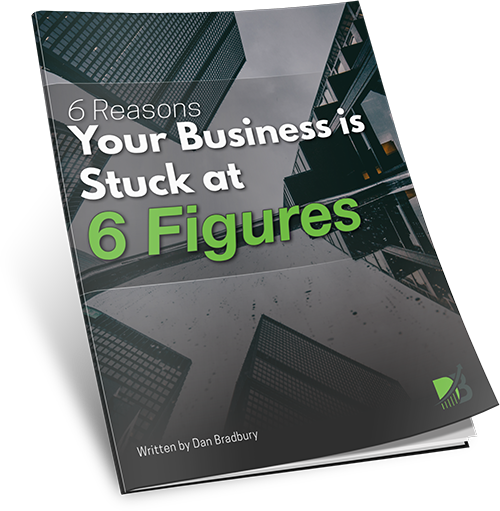Similarity bias
We tend to think that prejudice doesn’t affect us as much as it does others. Because of this, we do not notice how false beliefs hinder our careers, behave irrationally in solving work issues and lose the chance to grow up in the profession.
Grace Lordan, an associate professor at the London School of Economics, writes about this in the book “Thoughts on a big scale”. Drawing on discoveries in behavioral economics, she talks about what prejudices get in the way of a career.

Here are some common pitfalls.
The environment at work determines the norms of behavior and influences your actions. This is how the force of social pressure works. If you have people around you with similar views and experiences, you will inadvertently begin to adopt their principles and ideas.
This is a similarity bias effect.
To assess how it affects professional skills, economists Alexander Mas and Enrico Moretti analyzed the productivity of employees of the American supermarket chain. And we found that people’s level of effort varies depending on who they work with:
- if a shift was opened by an employee with more than average productivity, then his colleagues showed efficiency above their baseline
- team productivity increased even when a more productive employee just showed up
The best way to protect yourself from the bias of similarity is to look for a team with as different people as possible. If you cannot switch to another team now, here are less radical tips:
- Don’t be “the smartest in the office”Expand your social circle with people not from your collective. Look for those in the company who can share knowledge and experience that neither you nor your closest colleagues have.
- the norms of the teamAnalyze Work overtime or not stay even a minute? Don’t show initiative or contact managers even with a “raw” idea? Attend professional events or distance yourself from the industry community? Think about which team standards that you have not paid attention to before are hindering your development, and abandon them.
# 2. Risk avoidance effect
The louder you declare yourself, the more successful you grow in your career. And your “loudness” depends on how much you are subject to the effect of risk avoidance.
It makes itself felt even at the stage of job search. At the interview, even the employer himself finds it difficult to check how the candidate meets all the criteria. How then do you know if you are competent enough for the position? So use courage – you won’t be able to tell if you’re going to be a good fit until you take the risk.
Moreover, there is almost no relationship between competence and self-confidence. This is confirmed by the experiment of German scientists Alexander Freund and Nadine Kasten. They conducted 154 studies of the relationship between IQ test results and their own assessment of the intelligence of more than 20 thousand people.
The results showed that the subjective opinion coincided with the objective indicator in 10% of cases.

How to learn to take risks when you are not confident in your competencies:
- Do not judge the chances of success. If the prospects are above zero, this is already enough for action.
- Focus not on the result, but on the way to a solution – this is the only thing that completely depends on you.
- Remember that a premonition of defeat is worse than failure. After all, in the first case you get only negative experience without conclusions, and in the second – a chance to learn from mistakes.
Even if you take the risk and make a mistake, the brain will find an explanation – it tends to rethink failures and justify every choice so as not to worry once again. Psychologists have found that over time, the intensity of regret about actions decreases and we find advantages even in failures.
# 3. Mental Anchor
When we decide how much our services cost, the last salary acts as a psychological anchor . For example, you are given an offer and asked to voice your salary expectations. Surely you will be guided by the previous rate and, perhaps, will name the amount 10-30% more. That is, the last salary will be the starting point in negotiations.
This can lead to the fact that you will be paid little – you will not be able to objectively assess your skills and ask for an increase in the amount. If you have experience and are not in danger of losing your job over the mention of money, get rid of that anchor.
If you work for a company:
- talk to HR about the salary grid to understand the relationship between your income and your colleagues’ salaries
- monitor the market salary level to have arguments for talking to the manager about the promotion
- if possible, go to interviews with other companies to understand your “price” in the industry
Would you like to receive a digest of articles?
One letter with the best materials per week. Subscribe not to miss anything.
Thanks for your subscription!
If you are freelancing:
- ask how much the customer is willing to pay for your services, do not disclose the price first
- Increase your royalties by 5% and measure customer reaction
# 4. The phenomenon of the curse of knowledge
If you bring value to the company, you should receive a reward – money, promotion, decent working conditions. When you are not given it, do not be afraid to ask.
Do not assume that the boss will propose a promotion himself or ask about your initiatives. If you believe this, you are under the influence of the Curse of Knowledge effect. When you are well aware of something, it is difficult to imagine that others do not have the slightest idea about it. For example, you think that a manager cannot but know how promising your idea is for the latest project and how selflessly you work from morning to night to make it happen.
The Curse of Knowledge effect is enhanced by Diadem Syndrome . You think that if the manager knows what a responsible employee you are, then he is about to present a reward. And at this time, the manager is not aware of your claims.
How to draw attention to your job value and career ambitions:
- Formulate requests so that there is an obvious benefit to both partiesNo one will help implement your ambition without benefit for oneself. When asking for a promotion, discuss what additional tasks you can take on. If you want to get funding for a new project, go to the manual with calculations of its potential profit.
- Speak about the request as often as possibleDon’t be bored. This is how the awareness effect works: if people regularly hear about an idea, they are more likely to support it.
- Use the public promise trapIf gentle methods don’t work, make the request in front of other colleagues. For example, “Do you promise to consider my idea / think about raising?”.
# 5. Ostrich effect
When you’re afraid of negative feedback and prefer not to ask anything at all, the ostrich effect affects you. By succumbing to it, you are depriving yourself of valuable information for development.
To benefit from feedback, learn how to work with it:
- Stick to the three-source ruleYour colleagues definitely have their own prejudices, so you need to ask for a minimum of feedback three people to get an objective picture.
- Be specific about your feedbackAsk what you are doing right and what needs to be improved. For example, if you are advised to “learn time management,” clarify what you mean. Ask to talk about when you missed the deadline or slowly closed the task and how it affected the team’s work.
- Do not accept criticismWe tend to pay more attention to aspects of criticism that coincide with our perception of our own shortcomings. And as a result, we don’t get new information. Therefore, pay attention to those points on which you usually focus less.
- Turn off emotions When you give free rein to your feelings in response to criticism, feedback loses its constructiveness. You focus on failure, but focus on how to fix mistakes. To keep your emotions out of the way, take notes on the feedback you received and come back to them after a while when you cool off.
All business content in a convenient format. Interviews, cases, life hacks bldg. the world – in our telegram channel. Join!
# 6. Face Saving Effect
We often stand still because we are anxious about the opinions of others. What will your colleagues think of you if they find out how you spoke to your manager several times about the promotion but did not receive it?
The fear of being judged by others is the face-saving effect .
If you are acutely concerned about public defeat, be reassured by the fact that people are paying less attention to your actions than they seem. This bias was described by psychologist Thomas Gilovich and called it the spotlight effect .
In fact, people are preoccupied with their own problems and think little about others. Colleagues do not closely monitor your mistakes – they have enough of their own.
What if you have failed an important task and think that everyone is talking about it? Seek advice from trusted witnesses of defeat. Ask your colleagues directly if everyone on the outside really noticed mistakes.
Would you like to receive a digest of articles?
One letter with the best materials per week. Subscribe not to miss anything.
Thank you for subscribing!
